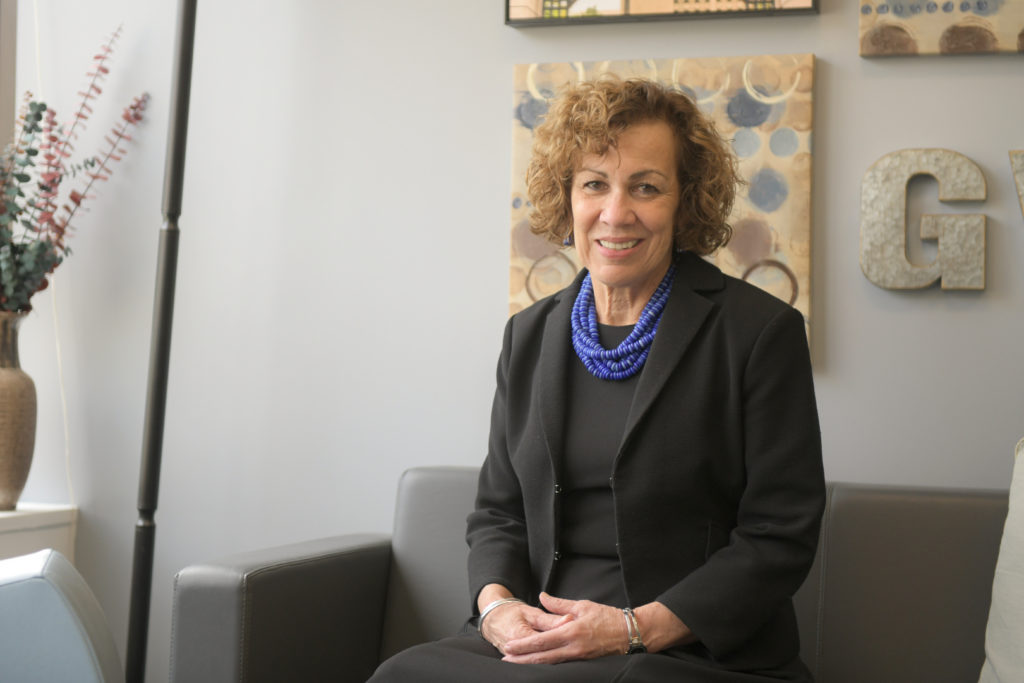The U.S. News and World Report ranked the School of Nursing’s online master’s of science in nursing program among the top 10 in the country in its annual rankings earlier this month.
For the second year in a row, the nursing school’s online master’s of nursing science programs – which emphasize research and advanced nursing practice – have earned the No. 6 spot out of the 183 ranked schools based on metrics like student retention, affordability and rigor. Nursing experts said the school’s ranking signals the high quality, affordability and academic rigor of its online master’s program – all of which attract prospective students.
“All of our graduate programs are online, so we have a vested interest in ensuring that we are constantly striving to provide our students with the best teaching and learning environment,” nursing school Dean Pamela Jeffries said in an email.
Jeffries said the school has hired a “talented” team of instructional designers and multimedia professionals to train faculty to design online coursework in an “innovative” way.
She said officials have focused on “branding and distinguishing” the school from its peer schools through social media platforms and the school’s biannual magazine to highlight student and faculty achievements. Jeffries said the school has always attracted quality students in its 10 years of operation, but the school has more limited name recognition compared to schools that have been around longer.
Among GW’s peer schools, the University of Pittsburgh’s online MSN program is ranked No. 26 and the University of Southern California falls into the No. 132-173 range, according to rankings.
“Peer recognition is an important factor in the rankings and so we’ve been deliberate in encouraging our faculty to have a much more active national presence by attending conferences, giving presentations and competing for national nursing awards,” Jeffries said.
She added that achieving a specific ranking within the top 10 is difficult to “control” because the schools are often separated in the rankings by only a few points but said the school will continue to build upon its strengths regardless.
“While ranking in the top 10 is a wonderful accomplishment and something we’re obviously very proud of achieving, the importance is not on the particular spot where we’re ranked as much as it is on receiving national recognition for the quality of our programs, our faculty and our students,” Jeffries said.
She added that the nursing school’s high ranking will increase the number of qualified applicants interested in online graduate programs and raise the prestige of the program’s graduates in the eyes of prospective employers.
“We hope it sends the message that GW should be your destination nursing school, whether you’re a prospective student considering online graduate programs, a nurse faculty seeking a job or an employer looking for your new hires,” Jeffries said.
Nursing experts said highly ranked online graduate nursing programs attract large numbers of prospective students with high student retention rates, affordable tuition costs and an “interactive” classroom environment.
Graduate enrollment in the nursing school has increased from 281 students in 2010 – when the school first opened – to 591 students in 2019, according to institutional data.
Michelle Collins, the associate dean for academic affairs at Rush University College of Nursing, said an online MSN program’s ranking signals both the quality of education the school provides and the “high caliber” of the program’s graduates.
“It tells future employers of the quality of the graduate that comes from that program, so that’s a benefit to society,” Collins said. “A benefit to the school is, it helps us to hold that bar high.”
Collins said nursing faculty must develop “innovative and inventive” methods – like hosting class discussions over video chat – of facilitating classroom discussion in addition to adhering to U.S. News and World Report metrics.
She said professors should be “creative” in how they choose to encourage student participation instead of assigning “boring” discussion methods, like responding to fellow student blog posts in online forums.
Collins added that universities should be careful not to overfill online courses – which she said can sometimes enroll upwards of 1,000 students – to ensure that students can form “strong” interpersonal relationships with their peers and professors.
“If you expect any sort of interaction with your students, a reasonable number of students would be a best practice,” Collins said.
Charlene Bermele, the director of the online nursing program at Saint Xavier University in Chicago, said highly ranked programs are more likely to attract qualified applicants given the school’s “solid” reputation.
“When a student is doing their homework and looking to apply, I do see that reflected in their application,” Bermele said. “The student has done their research and this is one reason why they’ve selected our institution to attend.”
The U.S. News and World Report asks institutions that participate in its ranking process to answer more than 100 questions about the school’s online programs, according to the organization’s website.
Bermele said academic rigor is the most important component of any nursing program because online nursing programs, particularly advanced nursing practice programs, must prepare future nurses for the challenges of a changing health care environment.
“We need to make sure that our programs are current, up-to-date and evidence-based, offering the most up-to-date and scientific data for our students who will be leading the future of nursing,” Bermele said.




